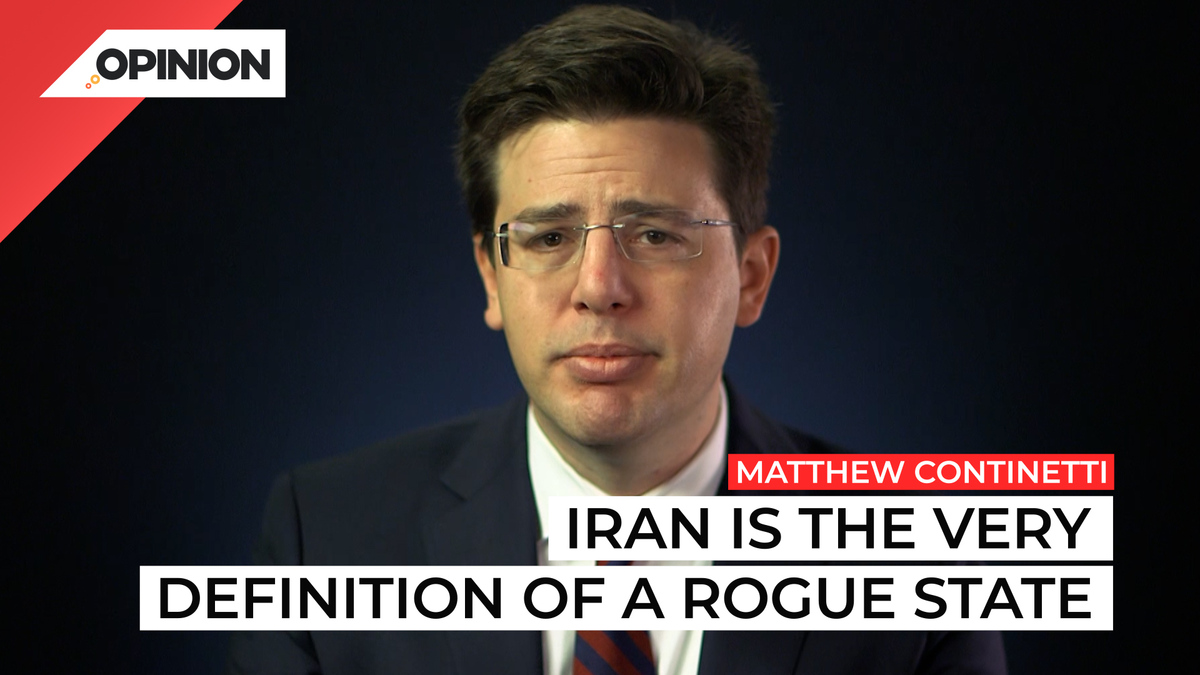
Commentary
-
Our commentary partners will help you reach your own conclusions on complex topics.
I was among the estimated 12 million people who watched the U.S.-Iran World Cup match on television on November 29. I cheered when the 24 year-old midfielder Christian Pulisic kicked the winning goal. My stomach was in knots during the second half as Team USA fended off a sustained Iranian offensive, and was filled with national pride when the Americans won. But a soccer game is no substitute for grand strategy.
And right now, President Biden’s Iran policy is a shambles. The Islamic theocrats who rule Iran are responding to internal revolt with savage repression and external terror. They murdered their own people, even children, while providing Russia with the means to commit atrocities against Ukrainian civilians. They continue to pursue nuclear weapons while ramping up their efforts to kidnap and assassinate regime critics, including former high-ranking officials of the U.S. government. They violate Iraq’s sovereignty with attacks on America’s Kurdish allies and fund the Houthi rebels terrorizing commercial traffic in Yemen.
Iran is the very definition of a rogue state, reckless, violent incendiary, and cruising for a bruising. To his credit, Biden has levied sanctions on Iranian government officials and organizations associated with the brutal crackdown on demonstrators. It’s a start. Otherwise, Biden has wasted time. He spent more than a year in a pointless diplomatic waltz in Vienna over the Iranian nuclear program, negotiations that the administration now admits had broken down.
He invested political capital in the short-lived truce in Yemen that has been defunct for months. He backed in Israeli-Lebanon maritime agreement that will strengthen Iran’s proxy Hezbollah, and his passive-aggressive relationship with Saudi Arabia jeopardizes the Middle East’s emerging anti-Iran Alliance. The potential rewards of a change in strategy are great. Iran is vulnerable. The courage of the protest movement is hollowing out the power of the regime from within; the application of external pressure could cause it to collapse. If all goes well, military force wouldn’t be necessary.
For that to happen however, the Ayatollah, his army and the Islamic Revolutionary Guard Corps, need to take the threat of force seriously enough that it scrambles their calculations and spooks them into concessions. Thus, the first step toward defeating the Islamic revolutionaries in charge of Iran is reviving America’s defenses and demonstrating America’s commitment to the security of the Persian Gulf. The next step is repairing America’s alliances with Saudi Arabia and Israel. The Saudis must understand that America supports the anti-Iranian coalition. And America must recognize that criticism of Israel’s incoming government should take second place to more important priorities, such as expanding the Abraham Accords and coordinating both covert and overt actions against the Iranian nuclear program.
President Biden can no longer afford to treat foreign policy as a distraction from his domestic goals. He needs to make the case not only for continued American assistance to Ukraine, but also for supporting the domestic opposition to a pariah regime that endangers the world. And he needs to do it using the same rhetoric as Ukrainians and Iranians who resist subjugation because they desire freedom.
The GOP House majority can remind Biden that only a broad and sustained effort backed by a credible deterrent will inspire dissidents and punish the maligned behavior of the Iranian regime.
It will take a bipartisan effort to revitalize American leadership and help the Iranian people realize their aspirations for democracy.
A win in soccer might be enough for some countries, not for team USA.
-
What kind of leader America needs
The American public remains divided and unhappy about the state of the country leading up to the next presidential election, and former President Donald Trump now holds a narrow lead in the matchup against President Biden. While Biden portrays Trump as a threat to American democracy, voters in key states ironically trust the former president…
-
NATO is stronger now than ever before
The North Atlantic Treaty Organization (NATO) has been called the most powerful military alliance in world history, and serves as the bedrock of military security for Europeans, Americans and allied populations around the globe. The importance of the alliance has been reiterated by recent events, namely Russia’s invasion of Ukraine and increasing threats from China.…
-
Who will Trump pick for vice presidential running mate?
Donald Trump is now clearly on track to run as the GOP candidate for president in the 2024 elections, regardless of how his various criminal trials proceed. What’s less clear is who else might run as his running mate for the position of vice president. Straight Arrow News contributor Matthew Continetti reviews a list of…
-
Education, income becoming key variables in elections
Education, income level, geography, race and ethnicity are all key variables in estimating who voters might support. But the importance of these variables has changed in recent elections, as America’s demography, culture and political movements continue to evolve. Straight Arrow News contributor Matthew Continetti argues that education and income level have become more important than…
-
If we’re lucky, AOC and the Squad are on their way out
The Squad, comprised of eight left-wing House Democrats, has been openly critical of Israel both before and during Israel’s war with Hamas. As primaries approach, some of these House members are facing challenging political races. Straight Arrow News contributor Matthew Continetti delves into the backlash against the Squad and hopes its members will face a…
Latest Opinions
-
 U.S. Department of Defense
U.S. Department of Defense
Congress still trying to figure out how to reduce wasteful military spending
-
 DVIDS
DVIDS
US Navy, Air Force making waves with new weapons at RIMPAC
-
 Getty Images
Getty Images
Israeli PM Netanyahu meets with Trump at Mar-a-Lago
-
 Getty Images
Getty Images
Growing US nuclear power resurgence reaches the nation’s heartland
-
 Getty Images
Getty Images
Beer from the sun, other solar thermal projects get government funding
Popular Opinions
-
In addition to the facts, we believe it’s vital to hear perspectives from all sides of the political spectrum.


